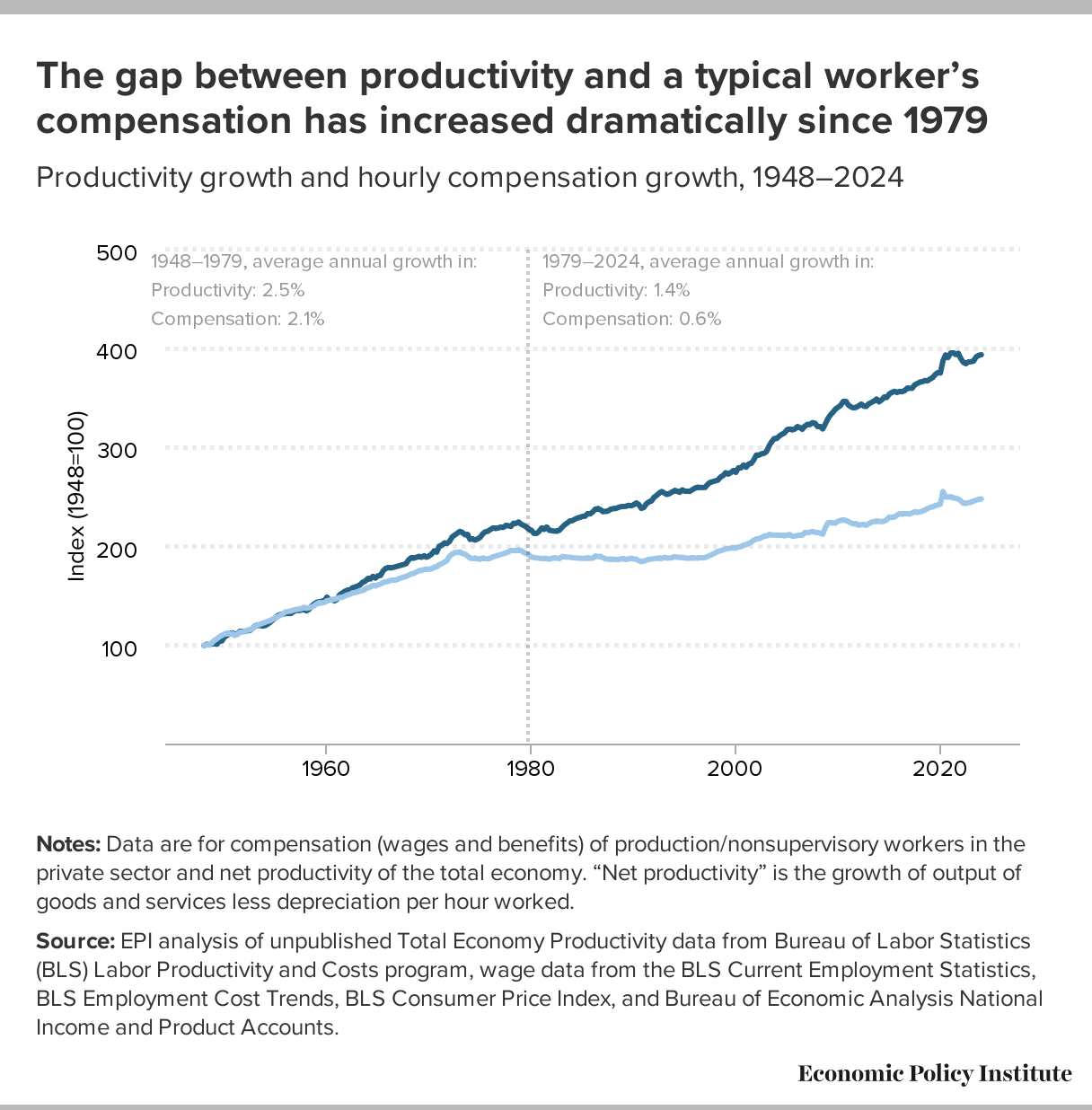One of the key demands by the United Auto Workers (UAW) union, which is in the fourth day of its historic strike against the so-called “big three” car manufacturers in the U.S., is a reduced workweek to achieve what its leader described as better work-life balance.
About 13,000 workers for Ford, General Motors and Stellantis walked out of their jobs, the first time in history that they are striking against all three companies simultaneously. Their demands include wage increases, cost-of-living adjustments for salaries to match with inflation and profit-sharing plans. They are also asking for “increased work, life, and family balance through increased paid time off and additional holidays.”
As part of the work-life balance request, the union is trying to negotiate a 32-workweek for 40 hours of pay that union President Shawn Fain said goes back to the 1940s.
“Our leaders back then were talking about a 35-, a 32-hour workweek,” he said.
The debate over four-day workweeks has gained significant traction over the last few years around the world as workers push for more flexibility in their jobs.
In the U.S., about 20 percent of companies surveyed by the International Foundation of Employee Benefit Plans are either considering, piloted, have formally implemented or have instituted four-day workweeks.
The foundation found in results published this month that part of the push for more flexible work arrangements and demand for better work-life balance came with the shift of the nature of work during the COVID-19 pandemic.
“As the traditional workweek saw a major upheaval with the pandemic, a few employers are implementing a four-day workweek for recruiting and retention reasons,” said Julie Stich, vice president of content at the foundation. “However, most employers, even if interested, are struggling to figure out how to make that a reality while trying to meet business operation goals.”
While there is some evidence that shorter workweeks may reduce stress without affecting productivity, companies struggle to implement them.
A study in New Zealand showed that employees appreciated having the extra day and some said it helped with their well-being. But the extra day off was viewed by management as a gift and added more pressure during the four days people were at work.
“There was a feeling of ‘a bit more urgency’ and ‘speeding up your processes,’” the study found. “Some liked what they felt was a quieter and more relaxed climate, whereas others enjoyed the ‘exhilarating’ and ‘full-on’ pace. One senior leader perceived that the ‘quality of some of the work deteriorated’ as a result of staff ‘trying to jam 100 percent into 80 percent’ of time.”
Fain wants to see a more balanced approach to how employees experience their work and home lives.
“We are one of the most overworked populations in the world,” he said. “We need to get back to fighting for a vision of society in which everyone earns family-sustaining wages and everyone has enough free time to enjoy their lives and see their kids grow up and their parents grow old.”
Researchers say it’s difficult to create that balance.
“But we must start with an honest appraisal of how productivity and time trade-offs impact the well-being of workers,” occupational psychologist Emma Russell wrote for Harvard Business Review.
https://www.epi.org/productivity-pay-gap/
Since 1980:
- Average non-supervisory wage has increased 17% (adjusted for inflation)
- Average worker economic productivity has increased 64.6%

It’s way past time we benefitted from the increasing productivity we’ve been putting out for the past 40+ years.
I’m not sure we’ll get there soon, but one way to get there sooner is to have some trust busters start breaking up these huge companies so they can’t use monopoly power to force workers to take bad deals.
Well yeah, if the employer expects 100% at all times, they are going to have a bad time. That leads to burnout and turnover. No human can work at 100% for the hours required without significant downtime.
If instead they set a reasonable metric of productivity, and used that as a baseline (not their line-driven bullshit https://m.youtube.com/watch?v=AnHiAWlrYQc) they will probably do better.
I, for one, welcome our 32 hour workweek UAW overlords.
The workers at Tesla better be watchin. These folks about to get what they are owed. They bent over backwards to help them out in the crash of '09, now that check is waaaaay past due.
I mean, it won’t, but at least the UAW members will end up with decent raises and maybe an end to the tiered system.
Fwiw in my loose reading on the topic the 40 hour workweek was basically caused by the previous UAW strike. It is feasible this happens again.
Removed by mod
deleted by creator
I think if “how do we do schools” is the biggest challenge (or among the biggest), then we’re well on our way to a 4 day workweek.
We have many options to make sure kids get enough education. Maybe we have teachers on two 4-day weeks, one set on Mon-Thu and one set on Tue-Fri. The kids go 5 days a week, they take classes that are “large class size” tolerant on Monday & Friday while half the teachers are at home.
Or instead of teachers working four 8-hour days, they work five 6-hour days.
Or have Tue-Wed-Thu have several short classes and Monday & Friday have long classes.
So many possibilities.
Removed by mod
I think ending the extended summer break is going to be for the best. Very few countries still do that. Just because we’ve always done it that way doesn’t mean we always have to.
Even the kids get bored on summer break. More 2 to 3 week breaks would be better.
Mix up the curriculum. Add an extra year or two. We learn so God damned much in like 12 years it’s insane
This is the best summary I could come up with:
One of the key demands by the United Auto Workers (UAW) union, which is in the fourth day of its historic strike against the so-called “big three” car manufacturers in the U.S., is a reduced workweek to achieve what its leader described as better work-life balance.
About 13,000 workers for Ford, General Motors and Stellantis walked out of their jobs, the first time in history that they are striking against all three companies simultaneously.
Their demands include wage increases, cost-of-living adjustments for salaries to match with inflation and profit-sharing plans.
The debate over four-day workweeks has gained significant traction over the last few years around the world as workers push for more flexibility in their jobs.
In the U.S., about 20 percent of companies surveyed by the International Foundation of Employee Benefit Plans are either considering, piloted, have formally implemented or have instituted four-day workweeks.
“But we must start with an honest appraisal of how productivity and time trade-offs impact the well-being of workers,” occupational psychologist Emma Russell wrote for Harvard Business Review.
The original article contains 538 words, the summary contains 173 words. Saved 68%. I’m a bot and I’m open source!
But the extra day off was viewed by management as a gift and added more pressure during the four days people were at work
That’s not how gifts work.









